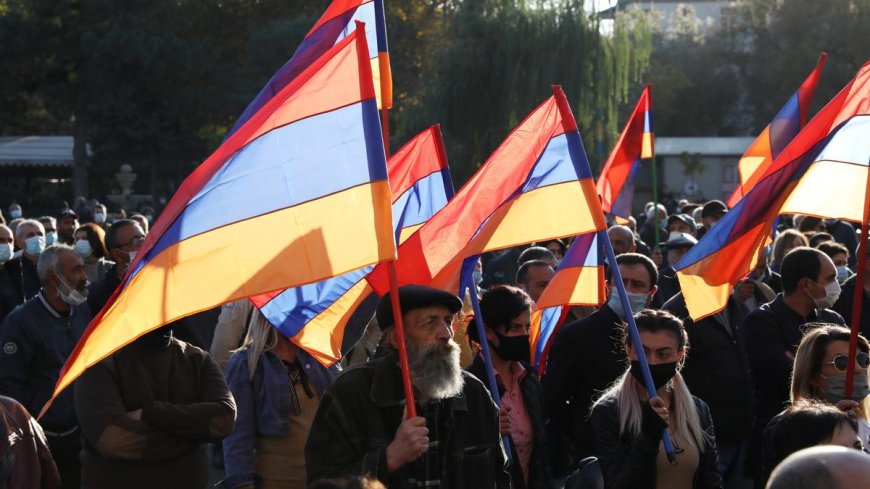And now, Armenia

By Amir Ali Yaganeh
In recent days, the city of Yerevan has been the site of large anti-government demonstrations that have flooded the streets in protest of the current policies of the Armenian government.[1] Protesters are calling for the resignation of the Pashinyan government due to new agreements that involve handing over border villages to Azerbaijan. This ceded area is strategically important for Armenia, a landlocked country, as it includes parts of a key highway to Georgia. The Western-oriented policies of the Armenian government have sparked numerous protests in recent months. Examining the recent developments in Armenia is crucial for neighboring countries, as the implications for the future of the Caucasus region are significant.
Western policies towards Armenia
One of the key priorities for the United States and European countries is their influence in Christian regions of the world. Under this guise, external powers can easily devise various strategies to impact target nations. Armenia stands out as a country with a predominantly Christian population, leading to the expansion of its diplomatic relations with European countries, particularly France, in recent years. It is important to recognize that European nations' policy in the Caucasus region aims to maintain control over Russia along their southern borders. Given Russia's involvement in a conflict with Ukraine over the past two years and its lack of strong control over neighboring countries, Armenia has become more open to engaging with Western nations. [2]The continued alignment of Armenia's government with Western policies could raise concerns for the Russian government.
Karabakh war
The recent conflict between Azerbaijan and Armenia, driven by the Baku government's relative advantages[3] has raised concerns about a potential heavy defeat for the Pashinyan government. Addressing this issue has become a top priority for Armenia. A group of statesmen in Armenia have concluded that, given the country's weakness and lack of foreign support, it would be best to pursue an agreement with Azerbaijan and meet their demands to achieve long-term peace. This situation has led to suspicion among the Armenian people towards the Pashinyan government, with the internal legitimacy of their actions at an all-time low. The Nagorno-Karabakh conflict remains a critical issue that the Pashinyan government is working to resolve.
Coup
In recent months, Russia and some of Armenia's neighbors have strongly protested against Armenia's passive policies. The Caucasus and Central Asian countries have long been considered Russia's external sphere, with Moscow's supervision and control over this country even after its collapse from the Soviet Union. In the past years, due to the conflict between Russia and Ukraine, the Caucasus region has been neglected by Moscow. However, the Karabakh wars and the serious presence of Western countries in this region have once again raised concerns for Russia.
For Russia, the presence of Western countries in the Caucasus region is a red line. Even Armenia's neighbors do not agree with the Western countries' presence in the region. Considering these issues, there is a possibility of foreign interference to change the government of Armenia.[4]
last word
The policy of Western governments in the Caucasus region is to create conflicts in this area. They are not determined to solve the problems of the Caucasus region. These countries prefer Russia and Iran to be involved in the divisive issues of the Caucasus, redirecting the attention of decision-makers in those countries away from international matters and towards their own region. The conflict between Iran and Russia in the Caucasus is also concerning for China, as it could potentially activate Islamic extremists (such as Wahhabi and Daesh) in Muslim areas of China.













































